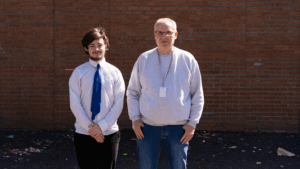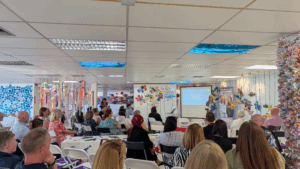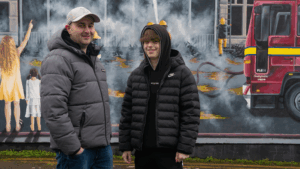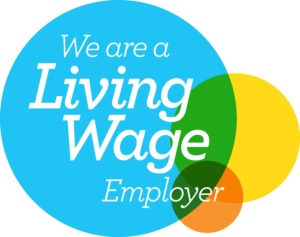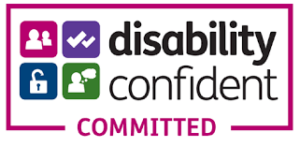Scott is the CEO at Edrington and leads a global workforce numbering in the thousands. Scott has spent almost 25 years in the drinks industry in finance, sales and general management roles.
He’s married with two children and lives in the Southside of Glasgow. We asked him about his other role as a Mentor with MCR Pathways.
Find out why Scott decided to become a mentor:
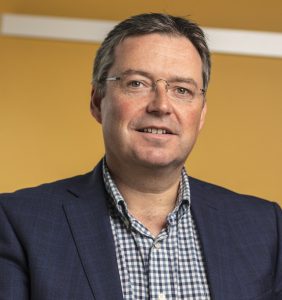
Why did you choose to volunteer with MCR Pathways?
“I grew up in humble circumstances in a mining village in Ayrshire and managed to get to a senior level in business. I thought that there may be some way that I could share my story to give some inspiration and encouragement to young people facing obstacles in their lives. I was also conscious that my children were moving on to university, so I could put my coaching skills to good use with someone else – possibly someone who would even listen this time! Kenneth Ferguson, Chief Executive of the Robertson Trust pointed me to MCR Pathways and it seemed like a great fit.”
What do you gain from mentoring?
“Being a mentor has helped me to develop some of my core leadership skills. At work I have power to make things happen – with my mentee I have none. As a result I have to stretch my skills to make headway – especially listening skills and persuasiveness. I also have to be sensitive to my young person’s feelings read non-verbal signals, and respond appropriately. I need to be more openly encouraging, supportive and less judgmental that I would normally be at work. It tests my creativity and problem solving.”
“It feels like a good work out at the gym at times – tough, but you definitely feel the benefit! The other area where I really benefit is getting re-introduced to the real world. Like many in business, I lead a bit of a charmed life; nice restaurants, business class flights, lovely hotels in great cities. There’s a danger you become a little disconnected from the realities of life for many people. I find going into the school and spending time with my young person really makes me appreciate how lucky I am, and how different the world looks to others. I have no doubt that this has made me more attuned to some of the issues in society and I think this is an important perspective for business leaders to have.”
What changes have you seen in your young person?
“He’s taken on some challenges, such as Duke of Edinburgh Bronze, which he may not have done without encouragement and support. I think he’s also getting more confident as a person and beginning to believe that he can make choices and take action to determine the course of his life. I’m trying to support him in practical areas, like going for work experience. We have a way to go, but I think we’ve had a good start.”
What is the best thing about being a mentor?
“I love feeling like I am contributing in a small way to an initiative that can help young people change their lives. I love my home city of Glasgow; I can see the potential to make a big impact for the better in changing attitudes, lives and the future of the city.”
What would you say to others about mentoring?
“My diary is a nightmare, and I travel around the world frequently, but with some planning and flexibility I manage to make it work. If I can do that, I’d think most other people could too. In my view, this has the potential to transform our city and our country. You will get a lot out of it personally, but more importantly your young person will benefit. Do it!
